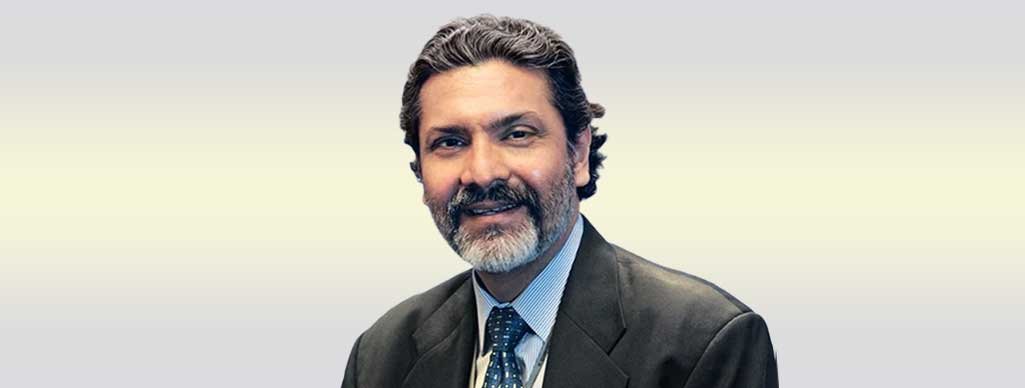

Sonal Karki, Naveli Singh
sonalk@indianoil.in, singn8@indianoil.in

Mr. Rajeev Dubey is a decorated leader with a profile and career graph that has been built over a solid foundation of academic brilliance and expertise of over 40 illustrious years in the industry. He currently serves as the Chairman of Mahindra Insurance Brokers Ltd, Mahindra Steel Service Centre Ltd and Mahindra First Choice Wheels Ltd, and is a Director on the Board of Fifth Gear Ventures Ltd. He has also headed as Group President (HR & Corporate Services), Mahindra & Mahindra. An enabler and a hallmark of his distinct ability to empower stakeholders, Rajeev, during an interview for HR Vista webzine, discussed the transition of HR as a facilitator and co-creator of crafting an organization’s culture, shaping its beliefs, and enriching the behavior of the employees by aligning them with the organizational values.
In conversation with Sonal Karki and Naveli Singh
You consider Satya, Prem, and Seva as the guiding principles of your corporate journey. You are a person who joins an organization because of its philosophy, poetry, and purpose. These are some of the fabulous things that we learn from your life.
With a career spanning 4 decades, how do you think the concept of culture has evolved over the years?
I would like to talk from my personal understanding and knowledge of these words, because my entry into the mystical world of HR per se started only in 2004 after I had spent 29 years with Tata working on the business side. So, I may not have an idea as to how the HR profession and HR literature may have looked at these words earlier. But as a practitioner from the business side, I do know that earlier people were far more concerned with target achievements than any of the softer aspects of management. The human side did obviously exist but words like philosophy, poetry or culture were not in the taxonomy of the conversations being held. I believe a lot changed around the 90s, when people started believing that business can flourish hand in hand with concepts like humanity and corporate citizenship, a case well demonstrated by Jim Collins in his seminal work ‘From Good to Great’.
Over the years, I believe that there has been a fundamental paradigm shift in the mindset. The concept of culture and values have now started taking center stage and have started becoming a part of business imperative rather than a nice thing to do. Several academicians as well as practitioners have now come to this conclusion that we need both hard and soft aspects of business working together. So, while we need to have the strategy, structure, process metric on one hand, we also need to have the values, philosophy, belief, and culture on the other.
With this visible shift in organizational priorities, where do you think the ownership of culture formation and percolation lie?
If we have to understand culture of an organization, we may simply refer to the way the employees behave in the everyday life especially as they go down taking business decisions. Thus, the ownership of culture is distributed and lies with each and every employee of the organization.
The common misconception is placing the onus of culture on HR. By no means can HR be responsible for owning the behavior of people across all functions. The role of HR is to act as a catalyst in shaping the desired behaviors. HR can also act as the custodian of the human capital development interventions designed towards achieving business strategy, improving productivity, enhancing innovation, but through behavior change.
This explicit recognition that HR is intertwined with hardcore business practice, strategy, R&D, accounting, finance, production, and supply chain, has made HR being seen as critical to business.
Do you think hiring the right people is crucial to maintaining a strong company culture?
People are the building blocks of organizational culture. Most companies prioritize skills and past accomplishments while interacting with a potential candidate. But in addition to the technical credentials, we must focus on hiring employees who bring their full sleeves and can easily ‘belong’ to the team. Especially at positions that involve critical thinking and decision making, being culturally aligned is more important than possessing a technical competency. “Being” (culture) impacts the Thinking (knowledge) and Doing (actions) of an individual. Even at positions, which do not involve key decision making, the focus should be more on finding the right talent with the ‘human’ element.
Although organizational values can always be nurtured and strengthened but the employee must at least identify with those values.
During my tenure at Mahindra, we realized that an organization must emphasizes on the fact that employees seamlessly mix intellect, rationality, and reason along with intuition and empathy in right portions to achieve richness of any outcome. Also, our belief has been that the employees should act as Multipliers, i.e., enable others by listening and respecting their views so that together they can co-create solutions to their problem areas. Thus integrity, compassion, empathy are some of the non-negotiable values that we always look for in our new hires.
Could you share some examples of interventions that you undertook to nurture and strengthen organizational values?
I can give you the example of Mahindra. ‘Mahindra Rise’ has been a movement to bring to life the core purpose of the group (Mahindra) and that purpose has been to drive positive change in the lives of all stakeholders and communities across the world and enable them to RISE. This is enabled through the sustained outperformance of our businesses, i.e., the products and services for the target segments that we serve while continuously challenging conventional thinking and innovatively using our resources. The campaign is essentially based on three (3) Rise pillars and five (5) behaviors that have been co-created over several years of being in the business. The three Rise pillars are, viz., Accept no limits, Do alternate thinking, and Ensure you are driving a positive change; and the five behaviors are, viz., Using whole mind, Multiplier, Managing fear and leveraging failure, Mindfulness, and Trust through Authenticity.
How can employees live and behave in accordance with organizational values?
It is through finely crafted human capital development interventions. Like I was sharing, Mahindra established cross-business and cross-functional teams to develop policies to nurture the Rise qualities across employees and trained a large group of people on the principles of Rise, to drive change programs.
The Leaders encouraged an atmosphere of fearlessness amongst the workforce and worked together with their teams to overcome fear by nurturing the workforce and encouraging them to take risks. The employees are also enabled to be open to all possibilities that exist in the moment and be aware of possibilities that exist around them by practicing alternative thinking and not just be ‘prisoners of their past’. We continuously try to promote a culture of Innovation wherein employees focus on rapid prototyping, identifying early failures, sharing feedback, and trying to get the outcome till they taste success.
Post covid the definition of workplace has changed, and most organizations have moved towards a Hybrid workplace. What is your view on culture in hybrid workplace?
I believe that human element has become far more important & business imperative especially in the New Normal where technology is taking the lead. Human factor plays far more important role than ever before now. I believe that compassion, trust, and humanness hold key to the prosperity of any organization, despite changing technology and workplace dynamics. When we talk about the VUCA environment where we live in, a lot of changes are happening not only in technology but also demographics where a lot of young minds are rising, then increasing role of women, cultural cross fit, geopolitical fit and climate changes. Once again, I would like to say that in order to survive in the cauldron of these changes & forces, human element is the solution. Hence the culture in the New Normal will majorly revolve around ‘being human’.
Being a member of the Governing Body of the International Labour Organization (ILO) and a Past President of the Employers’ Federation of India (EFI), you have seen both ends of the spectrum. In an era when more of the work is being completed by a talent portfolio, increasingly represented by contingent/gig workers, how does Culture stay relevant?
I agree that ensuring ‘culture-fit’ for gig workers and new recruits in fixed term employment is a massive challenge that organizations are going to face in the forthcoming years. The expectations of these kind of workers revolve more around job & social security. It’s tough to ensure that they imbibe the culture & values when they are in your organization for such short time. However, I am sure that creating an environment of trust, respect, belongingness and appreciation will encourage these new recruits and gig workers to believe that they are part of you and are aligned with the organizational values. I don’t think 10 or 20 years are required for creating such an experience. I believe that the question would be to how to bring to life an organization’s value & culture. This reminds of the concept, “smell of the place”, given by the author Sumantra Ghoshal. This concept very beautifully talks about creating that essence where any worker, short or long term would feel like home when they work for you. It will be challenge of HR to support and create such an experience, but I firmly believe that “Leaders have to be the change that they wish to see in others” and wherever intention is right, means to achieve success shall follow.
Posted in Leader Speaks | No Comments »
Recent Articles
- Happiness is a Serious Business
- Life is simple, and humour is a constant reminder of that simplicity!
- Never let success get to your head and never let failure get to your heart!
- Diversity is about synergizing the unique abilities of each individual and achieving a common purpose!
- A Road to Dignity
- Pandemic provided the tailwind to HR technology sector
- Make your workplace feel like home!
- Promoting mental health at workplaces in India
- The man who moved the mountain!
- CSR beyond Compliance: Its the intent that matters!
- Be curious enough to move up the value chain!
